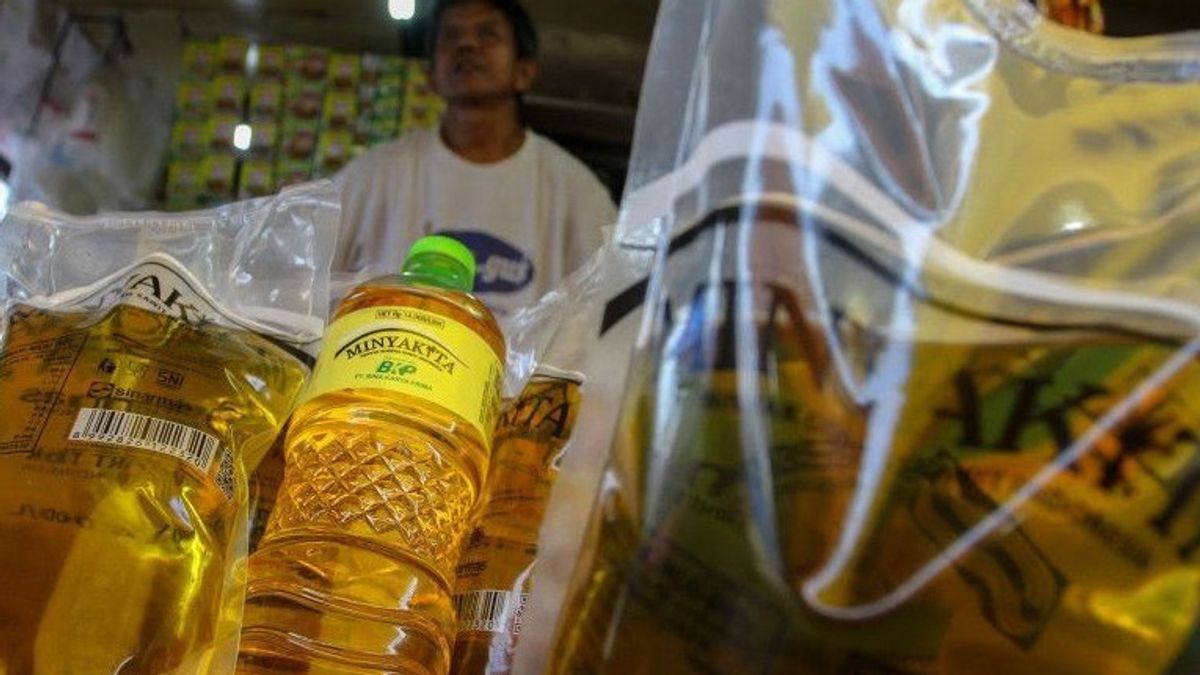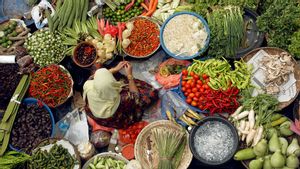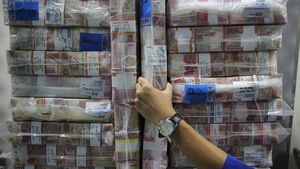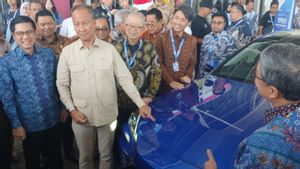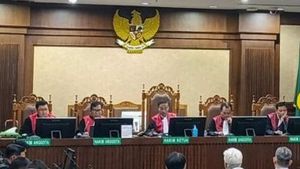JAKARTA - Researcher from the Center for Indonesian Policy Studies (CIPS) Krisna Gupta said that the decline in the domestic market obligation (DMO) quota for cooking oil could open up opportunities for increased exports. "The DMO relaxation carried out by the Ministry of Trade needs to be welcome, because the government has adjusted to current conditions," Krisna said in a written statement in Jakarta, quoted from Antara, Monday, May 1.Krisna explained theoretically, DMO could keep domestic supplies from ensuring that Indonesia is not short of cooking oil shortages. However, the Highest Retail Price (HET) policy was also ineffective as it removed incentives for entrepreneurs to sell cooking oil to the market and made prices more difficult to fall to normal levels. Nevertheless, the situation of crude crude palm oil (CPO) currently tends to be stable. Cooking oils commonly consumed in Indonesia are produced from CPOs. "International prices have long been stable at familiar levels, even in the past two weeks starting to weaken. In addition, domestic obligations have already been fulfilled the impact of high demand in the fasting month and Eid yesterday," Krisna said. DMO policy has an impact on other palm oil derivative products, which are not related to cooking oil (oleochemical), because not all types of palm oil can be used for cooking oil. Furthermore, the DMO policy complicates exporters because not all of them have specializations to supply domestic markets, they also do not necessarily understand domestic distribution chains. According to Krisna, production of CPOs in Indonesia has continued to decline since 2019. In 2021, production of CPOs decreased by 0.9 percent from the previous year to 46.89 million tons, based on GAPKI data. Krisna asserts, access to affordable fertilizers is the key to meeting demand for oil palm oil the world which is expected to continue to increase. One of the factors causing the decline in palm oil production is the high price of fertilizers, which makes it difficult for farmers to access affordable fertilizers. The prices for nitrogen-based fertilizers and phosphates widely used by palm oil farmers increased 50-80 percent in mid-2021 due to increased disruption in supply chains, as well as the increase in transport costs, demand, and raw material prices.Pupuk is the main component in palm oil production that consumes 30--
VOIR éGALEMENT:
Self-help farmers who are unable to afford fertilizer at high prices will reduce their use of fertilizers and this has the potential to reduce their crops. "The government also needs to think about rejuvenating trees that are starting to be unproductive," said Krisna.
On Thursday 27 April, the Ministry of Trade (Kemendag) said the domestic supply of cooking oil was reduced from 450 thousand tons per month to 300 thousand tons per month or back to the start, which took effect from May 2023.
The policy is in accordance with the results of an evaluation coordination meeting on the cooking oil policy which was implemented on April 18, 2023 with the Coordinating Minister for Maritime Affairs and Investment (Menko Marves) Luhut Binsar Pandjaitan. The decline in DMO is a step to control the stability of cooking oil prices in the domestic area after the Ramadan and Eid periods.
The English, Chinese, Japanese, Arabic, and French versions are automatically generated by the AI. So there may still be inaccuracies in translating, please always see Indonesian as our main language. (system supported by DigitalSiber.id)
